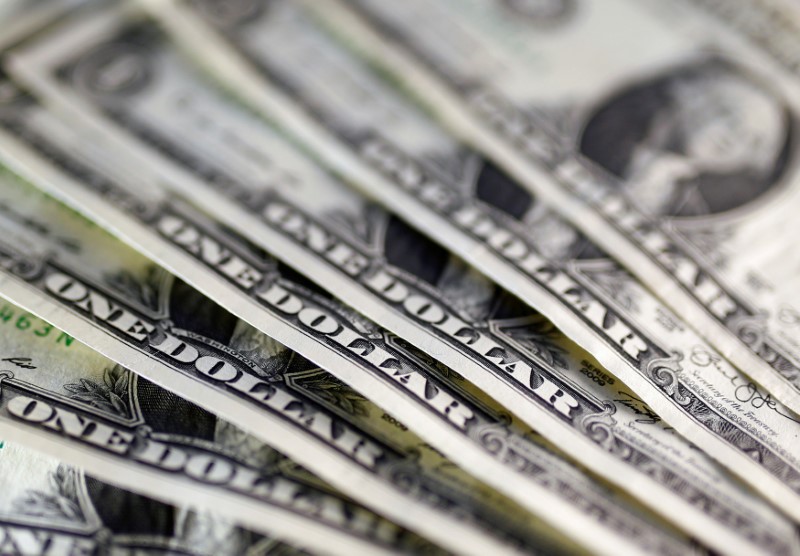By Peter Nurse
Investing.com - The dollar edged marginally higher in early European trade Thursday, but remained near a one-week low amid healthy risk appetite ahead of the Federal Reserve’s key Jackson Hole symposium.
At 2:55 AM ET (0755 GMT), the Dollar Index, which tracks the greenback against a basket of six other currencies, traded 0.1% higher at 92.930, after falling to 92.801 overnight for the first time since mid-August.
EUR/USD edged 0.1% lower to 1.1761, after touching a one-week high of 1.1775 the previous day, USD/JPY was up 0.1% at 110.05, GBP/USD fell 0.1% to 1.3744, and the risk sensitive AUD/USD dropped 0.3% to 0.7255.
Risk appetite has been boosted this week by the decision of the U.S. Food and Drug Administration to grant full approval to the Covid vaccine developed by Pfizer (NYSE:PFE) and BioNTech (DE:22UAy), with the market assuming that the full approval of other vaccines will follow shortly and thus the peak of the Covid wave is near.
This move prompted Dr. Anthony Fauci, the top U.S. infectious disease expert, to say earlier this week that Covid-19 could be under control by early next year.
Adding to the optimism was the news Wednesday that new orders for U.S durable goods, excluding transportation equipment, grew by 0.7% in July, a better than expected result.
There’s more important data on tap later Thursday, including the weekly jobless claims and another reading of the second quarter GDP figure, but the focus remains on Friday’s speech by Fed chair Jerome Powell at a virtual gathering of U.S. central bankers, usually held at Jackson Hole, Wyoming.
“Powell’s speech is set to be a “litmus test” for risk assets,” said analysts at ING, in a note. “Essentially, it will tell us how sustainable the rebound in risk sentiment is and to what extent it has been driven by expectations of a more cautious tone by Powell tomorrow (i.e. hints that tapering will be delayed) due to the Delta-variant spread.”
Elsewhere, USD/KRW rose 0.6% to 1,170.58 after the Bank of Korea raised its benchmark interest rate by 25 basis points to 0.75%, meaning South Korea became the first major Asian economy to lift record-low borrowing costs since the start of the pandemic.
